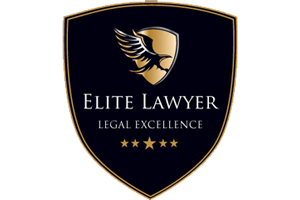- Free Consultation: (213) 251-5533 Tap Here to Call Us
Pregnancy Disability Leave

The Fair Employment and Housing Act (FEHA), enforced by the California Department of Fair Employment and Housing (DFEH), contains provisions guaranteeing leave for employees disabled by pregnancy, childbirth, or a related medical condition (Pregnancy Disability Leave or PDL).
All employers must provide information about PDL to their employees and post information about pregnancy leave rights in a conspicuous place where employees tend to gather. A poster that meets this requirement is available on DFEH’s “Posters, Brochures and Fact Sheets” webpage (www.dfeh.ca.gov/Posters/). Employers who provide employee handbooks must include information about PDL in the handbook.
Leave Requirements
- An employee disabled by pregnancy, childbirth, or a related medical condition is entitled to up to four months of disability leave per pregnancy. If the employer provides more than four months of leave for other types of temporary disabilities, the same leave must be made available to employees who are disabled due to pregnancy, childbirth, or a related medical condition.
- Leave can be taken before and after birth during any period of time the employee is physically unable to work because of pregnancy or a pregnancy-related condition. All leave taken in connection with a specific pregnancy counts toward computing the four-month period.
- PDL is available when an employee is actually disabled. This includes time off needed for prenatal or postnatal care, severe morning sickness, doctor-ordered bed rest, childbirth, recovery from childbirth, loss or end of pregnancy, or any other related medical condition.
- PDL may be modified as an employee’s changing medical condition dictates.
- PDL applies to all employers with five or more fullor part-time employees. Other than havIf 30 days’ advance notice is not possible due to a change in circumstances or a medical emergency, notice must be given as soon as practicable.ing a qualifying pregnancy-related disability, there are no tenure, hours, other eligibility requirements, and full- and part-time employees are treated the same.
Employee’s Obligations
- If possible, an employee must provide their employer with at least 30 days’ advance notice of the date for which the pregnancy disability leave is sought and the estimated duration of the leave.
- If 30 days’ advance notice is not possible due to a change in circumstances or a medical emergency, notice must be given as soon as practicable.
- The employer may require written certification from the health-care provider of the employee seeking PDL stating the reasons for the leave and the probable duration of the condition. However, the health-care provider may not disclose the underlying diagnosis without the consent of the patient.
Salary and Benefits During PDL
- An employer may require an employee to use accrued sick leave during any unpaid portion of their pregnancy disability leave. The employee may also choose to use vacation leave or other accrued paid leave to receive compensation for which the employee is eligible, but an employer may not require an employee to use vacation leave or other accrued time off during PDL.
- Your employer must pay for the continuation of your group health benefits if your employer normally pays for those benefits.
- An employee who is disabled by pregnancy may qualify for State Disability Insurance wage replacement while the employee is unable to work. In a normal pregnancy, a worker will typically be disabled 4 weeks before the expected due date and 6 weeks after for a vaginal birth or 8 weeks after for a cesarean section. For more information, visit: www.edd.ca.gov/Disability/ FAQ_DI_Pregnancy.htm.
Return Rights
- It is illegal for an employer to fire an employee because that employee is pregnant or taking pregnancy disability leave. Employers are required by law to reinstate an employee returning from PDL to the same position the employee had before taking leave, and an employee may request this guarantee in writing. In some situations, an employee may be reinstated to a position that is comparable (same tasks, skills, benefits, and pay) to the job they had before taking PDL.
- If the reinstatement date differs from the original agreement, or if no agreement was made, an employer must reinstate the employee within two business days of being given notice that the employee intends to return. When two business days are not feasible, reinstatement must be made as soon as possible to expedite the employee’s return.
- However, pregnancy disability leave does not protect employees from employment actions not related to their pregnancy, such as layoffs.
Family and Medical Leave (Non-pregnancy)
- In addition to PDL, the California Family Rights Act (CFRA) requires employers of five or more employees to provide 12 weeks of job-protected leave to employees to bond with a new child (by birth, adoption, or foster placement), to care for a family member with a serious health condition, or because the employee has a serious health condition. CFRA leave is not for pregnancy-related conditions, which are covered by PDL. Employees are entitled to take CFRA leave in addition to any leave entitlement related to pregnancy. CFRA leave taken to bond with a new child must be completed within one year of the birth, adoption, or foster placement. For more information about CFRA leave, visit: www.dfeh.ca.gov/familymedical-pregnancy-leave/.
- Paid Family Leave (PFL) provides benefits to individuals who need to take time off work to care for a seriously ill child, parent, parent-inlaw, grandparent, grandchild, sibling, spouse, or domestic partner. Benefits are also available to parents who need time to bond with a new child entering their life either by birth, adoption, or foster care placement. For more information, visit: www.edd.ca.gov/Disability/Paid_Family_Leave.htm.
Accommodations While Working
- Sometimes employees affected by pregnancy, childbirth, or related medical condition are able to keep working with a reasonable accommodation. If such an employee requests a reasonable accommodation upon the advice of the employee’s health-care provider so that the employee can keep working, an employer must provide reasonable accommodation.
- For example, on the advice of a physician, an employee can request to transfer to a less strenuous or hazardous position or modified duties because of the employee’s pregnancyrelated condition.
Please note that the information provided on this website is for general information purposes only and is not to be construed nor relied upon as legal advice nor the formation of an attorney-client relationship. For a free consultation with Attorney Thomas M. Lee, please contact us.








